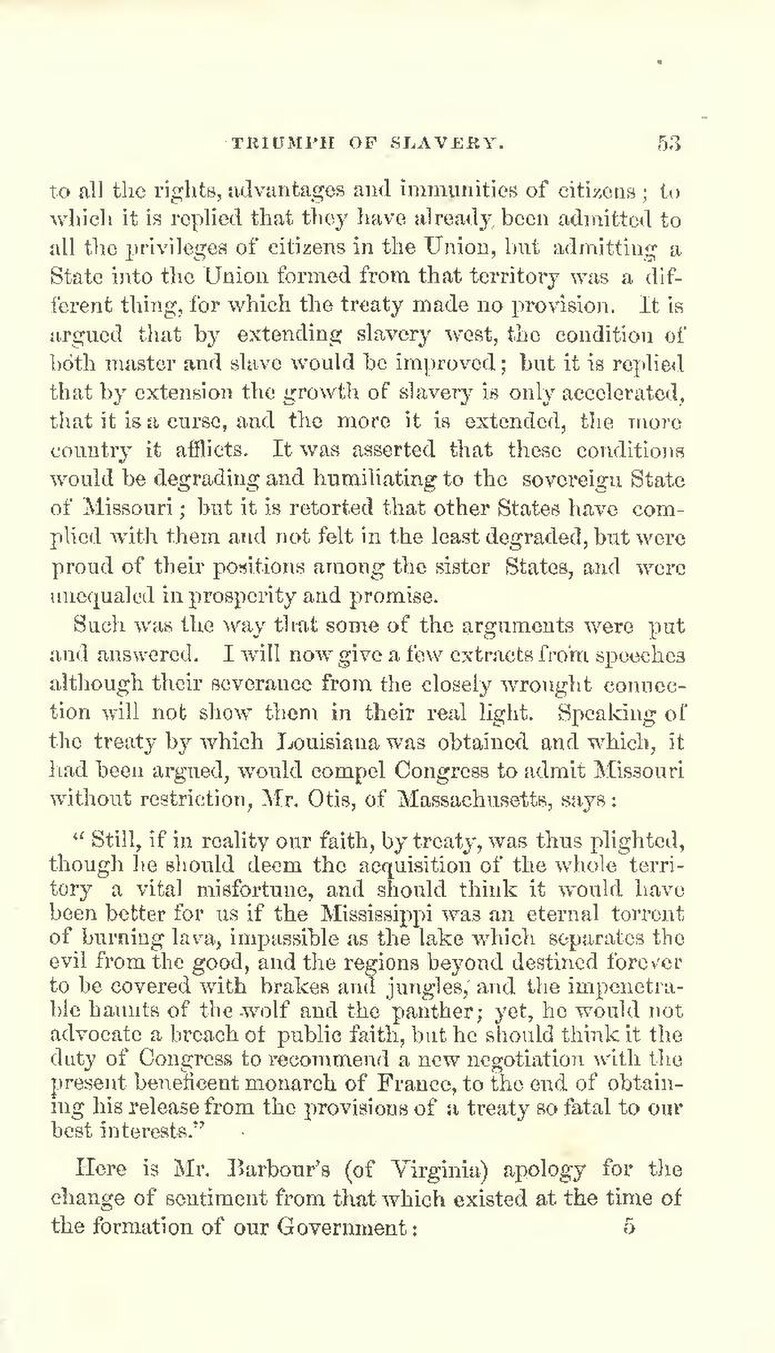to all the rights, advantages and immunities of citizens; to which it is replied that they have already been admitted to all the privileges of citizens in the Union, but admitting a State into the Union formed from that territory was a different thing, for which the treaty made no provision. It is argued that by extending slavery west, the condition of both master and slave would be improved; but it is replied that by extension the growth of slavery is only accelerated, that it is a curse, and the more it is extended, the more country it afflicts. It was asserted that these conditions would be degrading and humiliating to the sovereign State of Missouri; but it is retorted that other States have complied with them and not felt in the least degraded, but were proud of their positions among the sister States, and were unequaled in prosperity and promise.
Such was the way that some of the arguments were put and answered. I will now give a few extracts from speeches although their severance from the closely wrought connection will not show them in their real light. Speaking of the treaty by which Louisiana was obtained and which, it had been argued, would compel Congress to admit Missouri without restriction, Mr. Otis, of Massachusetts, says:
“Still, if in reality our faith, by treaty, was thus plighted, though he should deem the acquisition of the whole territory a vital misfortune, and should think it would have been better for us if the Mississippi was an eternal torrent of burning lava, impassible as the lake which separates the evil from the good, and the regions beyond destined forever to be covered with brakes and jungles, and the impenetrable haunts of the wolf and the panther; yet, he would not advocate a breach of public faith, but he should think it the duty of Congress to recommend a new negotiation with the present beneficent monarch of France, to the end of obtaining his release from the provisions of a treaty so fatal to our best interests.”
Here is Mr. Barbour's (of Virginia) apology for the change of sentiment from that which existed at the time of the formation of our Government:
